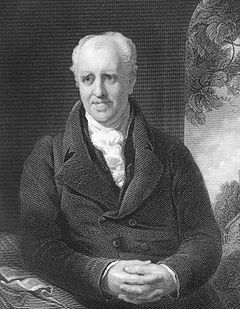George Crabbe (1754-1832)
LOOK in any bibliographical history of poetry and the name and works of George Crabbe will feature.
Widely regarded as the forerunner to Wordsworth, Crabbe is considered the chief founder of the rural school.
His extensive knowledge of humanity owed much to his 20 years in the Grantham area, as rector of Muston and Allington, Belvoir, Stathern and Croxton Kerrial, and as chaplain to the Duke of Rutland.
He lived and worked in the area from 1781 to 1792, when he moved to Suffolk, and from 1805 to 1814, again as rector of Muston and Allington.
Crabbe is renowned for the realism of his works. S
uffolk-born Crabbe gives an insight into it in a letter written from Muston Rectory to his publisher in 1812, stating: “A principal view and wish of the poet must be to engage the mind of his readers, as failing in that point he will scarcely succeed in any other. I therefore willingly confess that much of my time and assiduity has been devoted to this purpose; but, to the ambition of pleasing, no other sacrifices have, I trust, been made than of my own labour and care.”
Humour was not his strong point yet he was something of a satirist.
He smashed the ‘pretty, pretty’ concept of poetry with vigorous verse that sustained interest.
And he drew on his Grantham surroundings to do it, as shown in The Village and The Borough.
In The Borough he refers to the 1787 extension to the original Guildhall on Guildhall Street.
It was enlarged to accommodate not only the police cells and court but also as an assembly room and club or meeting place for various societies.





Leave a Reply
You must be logged in to post a comment.